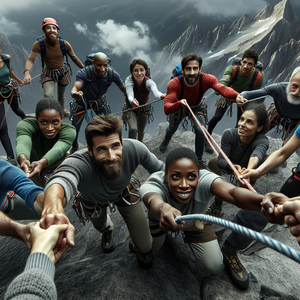The Influence of Social Media on Election Outcomes

Social media has revolutionized political campaigns, shifting the paradigm from traditional forms of outreach—such as television, radio, and print—to a more interactive and immediate form of communication. Candidates can now share their messages, respond to constituents, and mobilize supporters with unprecedented speed and reach. One of the most notable examples of this transformation occurred during the 2008 U.S. presidential election when Barack Obama’s campaign effectively utilized social media to engage younger voters. His team's innovative use of platforms like MySpace and Facebook helped to create a sense of community and belonging among young voters, leading to a significant increase in turnout among this demographic. In the subsequent 2016 election, Donald Trump's campaign showcased social media's dual-edged nature. By leveraging Twitter, Trump communicated directly with the public, bypassing traditional media channels and creating an unfiltered narrative. This approach energized his base and allowed for rapid dissemination of his controversial statements, but it also contributed to the polarization of political discourse, highlighting the complexities of social media's influence on political campaigns.
Voter Engagement and Mobilization
In addition to transforming campaign strategies, social media platforms foster innovative ways to engage and mobilize voters. Candidates can use interactive content such as live Q&A sessions, polls, and targeted advertisements to tailor their messages to specific demographics. For instance, during the 2020 election cycle, Joe Biden’s campaign adeptly used social media to connect with voters grappling with the COVID-19 pandemic. By addressing their concerns through targeted messaging about healthcare and economic recovery, Biden’s campaign effectively resonated with the electorate. Moreover, social media has become a vital tool for grassroots movements, amplifying voices that may be overlooked in mainstream discourse. Organizations like Black Lives Matter have harnessed social media to raise awareness about social justice issues, mobilize protests, and encourage voter registration. The viral nature of social media allows these movements to gain traction quickly, influencing election outcomes by increasing voter participation and awareness of critical issues.
The Challenge of Misinformation
Despite its potential to enhance voter engagement, social media also presents significant challenges, particularly concerning misinformation. False narratives and conspiracy theories can spread like wildfire, undermining public trust in the electoral process. The 2016 U.S. election underscored the pervasive issue of misinformation, with foreign actors using social media to sow discord and manipulate public opinion. In response to these challenges, social media companies have taken steps to combat misinformation through collaborations with fact-checking organizations. For example, Facebook and Twitter have implemented measures to label false information and promote accurate reporting. However, as misinformation tactics continue to evolve, there is a pressing need for ongoing vigilance and innovative solutions to safeguard the integrity of electoral discourse.
The influence of social media on election outcomes is profound and multifaceted. While it provides opportunities for enhanced voter engagement and mobilization, it also poses challenges that threaten the democratic process. As we move forward into an increasingly digital political landscape, understanding the dynamics of social media will be crucial for both candidates and voters. To harness the power of social media in a way that strengthens democracy, we must foster transparency, promote media literacy, and encourage responsible engagement. The lessons learned from previous electoral cycles will be vital in shaping strategies for the upcoming 2024 elections, ensuring that social media serves as a tool for informed participation rather than a vehicle for division and misinformation. Ultimately, the relationship between social media and politics will continue to evolve, and it is imperative that we navigate this complex terrain with care and foresight.
Social Media Strategist
Marketing agencies, political campaigns, non-profit organizations, corporate communications departments
Job Description
Develop and implement comprehensive social media strategies to increase brand awareness and engagement.
Create and curate compelling content tailored to various platforms, including Facebook, Twitter, Instagram, and LinkedIn.
Analyze performance metrics and adjust campaigns based on data-driven insights.
Skills
Proficiency in social media management tools (e.g., Hootsuite, Buffer)
Strong writing skills
Familiarity with analytics platforms (e.g., Google Analytics, Facebook Insights)
Digital Campaign Manager
Political parties, advocacy groups, consulting firms focused on political campaigns
Job Description
Oversee all aspects of digital marketing campaigns for political candidates, including social media, email marketing, and online advertising.
Coordinate with content creators to ensure messaging aligns with campaign goals and resonates with target demographics.
Monitor campaign performance and adjust strategies in real-time based on analytics and voter feedback.
Skills
Strong understanding of digital advertising platforms (e.g., Google Ads, Facebook Ads)
Project management experience
Excellent communication skills
Political Data Analyst
Political consulting firms, research organizations, non-profit advocacy groups
Job Description
Analyze voter data to identify trends, preferences, and engagement levels, providing actionable insights for campaign strategies.
Utilize statistical software and data visualization tools to present findings to campaign teams.
Collaborate with campaign managers to tailor outreach efforts based on demographic analysis.
Skills
Proficiency in statistical software (e.g., R, SPSS)
Strong analytical skills
Experience with data visualization tools (e.g., Tableau, Power BI)
Misinformation Researcher
Academic institutions, think tanks, non-profit organizations focused on media literacy and public policy
Job Description
Investigate and analyze the spread of misinformation on social media platforms and its impact on public opinion and electoral outcomes.
Collaborate with fact-checking organizations and social media companies to develop strategies for combating misinformation.
Produce reports outlining findings and recommendations for policy changes to enhance the integrity of information shared online.
Skills
Strong research and analytical skills
Familiarity with social media trends
Understanding of misinformation tactics and strategies
Community Engagement Coordinator
Political campaigns, advocacy organizations, community service agencies
Job Description
Design and implement strategies to engage and mobilize community members around specific political issues or campaigns using social media and grassroots outreach.
Organize events, workshops, and online forums to foster dialogue between candidates and constituents.
Monitor community feedback and sentiments to inform campaign messaging and strategies.
Skills
Strong interpersonal and communication skills
Experience in event planning
Familiarity with community organizing principles


